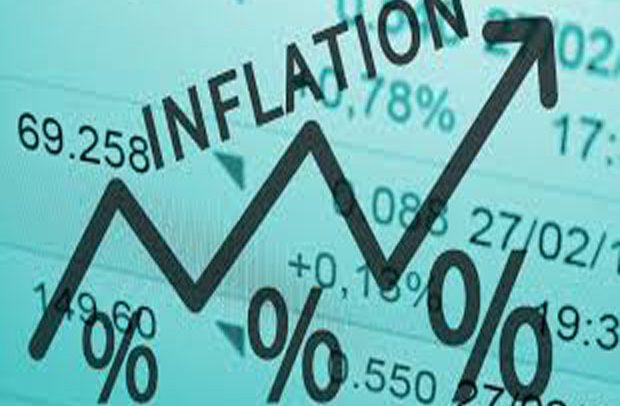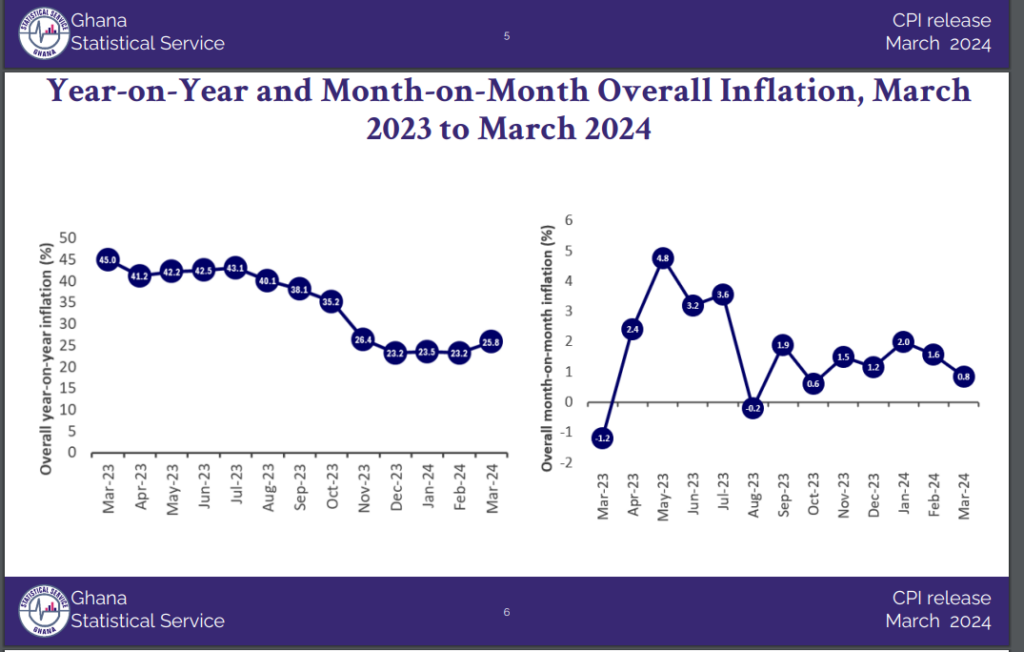
By Ebenezer NJOKU
Inflation has increased to 21.5 percent in September 2024, up from 20.4 percent in August, according to the latest Consumer Price Index (CPI) report released by the Ghana Statistical Services (GSS).
This comes five days after the Bank of Ghana (BoG) announced a two percent cut to its benchmark Monetary Policy Rate (MPR) – the highest in six years, partly due to sustained decelerating prices.
The uptick consequently reverses the modest deceleration observed in previous six months and indicates persistent inflationary pressures in the economy.
The CPI, which measures changes in the price of a fixed basket of goods and services purchased by households, stood at 235.8 in September 2024, compared to 194.2 in September 2023, representing a significant increase in the general price level over the past year.
The report also notes that month-on-month inflation between August and September 2024 was 2.8 percent, a significant increase from the -0.7 percent recorded in August.

Food for thought
Food inflation, which has been a major driver of price increases historically and recently, rose sharply to 22.1 percent in September from 19.1 percent in August.
Notably, some staple foods experienced substantial price increases. The report states that plantain saw a 91.5 percent year-on-year increase, while cassava and other tubers rose by 54.5 percent. These were among the items with the highest price escalations. Non-food inflation similarly stood at 20.9 percent in September, slightly lower than the 21.5 percent recorded in August. However, certain non-food categories saw significant price hikes.
The report indicates that housing, water, electricity, gas and other fuels recorded the highest inflation rate among all categories at 45 percent, highlighting the growing cost pressures in this essential sector.
Regional variations
Inflation rates varied considerably across regions. The highest regional inflation rate was recorded in the Savannah Region at 36.4 percent, while the lowest was in the North East Region at 16.7 percent.
Inflation for locally produced items was 23.4 percent in September 2024, outpacing the 17 percent inflation rate for imported items. This difference may have implications for domestic production and competitiveness.
After housing and utilities, the categories with the highest inflation rates were furnishings and household equipment at 33.3 percent, and personal care, social protection and miscellaneous goods and services at 27.1 percent .
The Ghana Statistical Services’ methodology for calculating the CPI and inflation rate involves data collection from 57 markets, covering approximately 47,800 products from 8,337 outlets across 16 regions. This comprehensive approach aims to provide a representative picture of price changes across the country.

Monetary authority
At the press briefing to announce the MPR cut from 29 percent to 27 percent, Central Bank Governor Dr. Ernest Addison said: “The disinflation process remains on track, supported by a tight monetary policy stance”.
He added that the bank was optimistic about the inflation outlook, with projections suggesting that inflation will gradually decelerate toward the target range of 13-17 percent by the end of this year. Assuming no unforeseen shocks, the MPC anticipates that inflation will progressively revert to the medium-term target of 6-10 percent by the close of 2025.
Market analysts believe the September 2024 spike does not imply that the MPR rate reduction was premature.
While they concede that the Yuletide-induced demand, especially in an election year, could drive currency and price pressures, they do not believe it will spiral in the final quarter of the year.
The post Inflation spikes to 21.5% in Sept, first in 6 mths appeared first on The Business & Financial Times.
Read Full Story





















Facebook
Twitter
Pinterest
Instagram
Google+
YouTube
LinkedIn
RSS